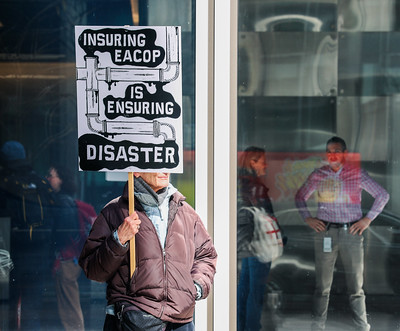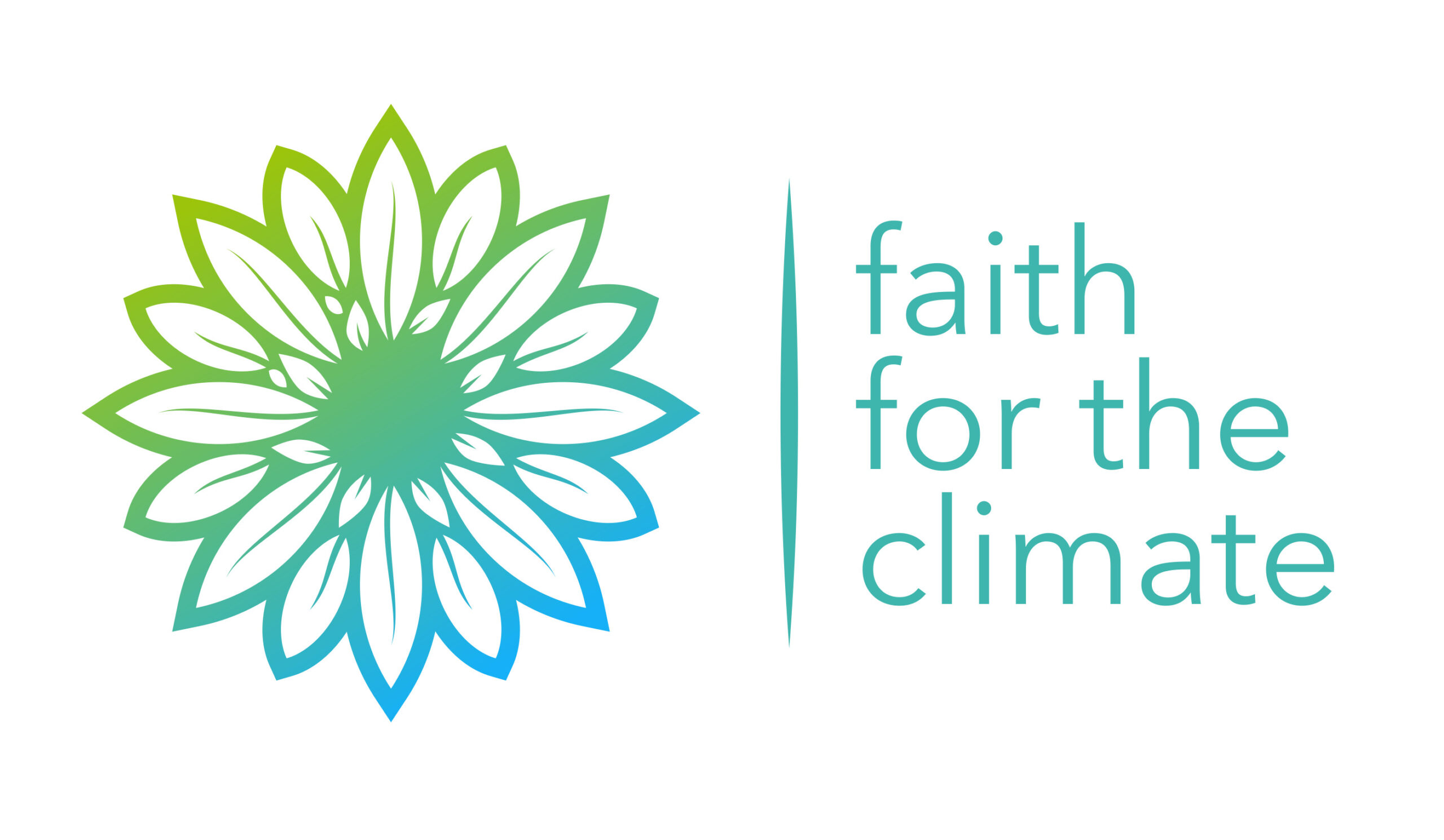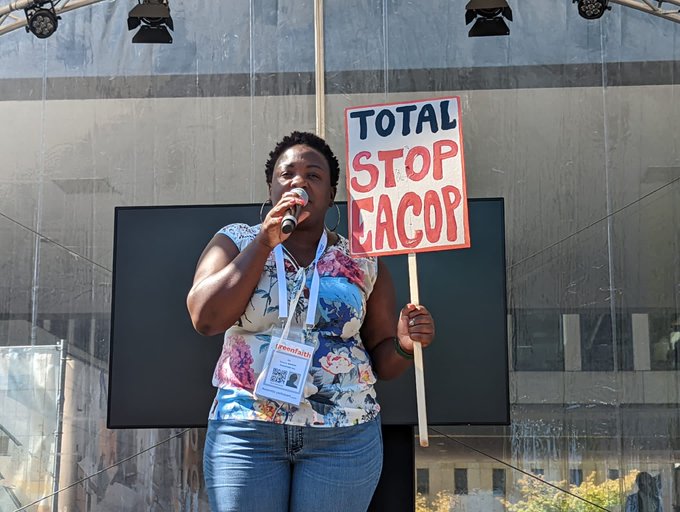“EACOP is Wrong. Stop it now.”
At our recent (July) network gathering, Meryne Warah, Global Organising Director at Greenfaith, told us why we must stop the EACOP pipeline
The East Africa Crude Oil Pipeline (EACOP) and Tilenga Oil Project, led by French multinational TotalEnergies, represent a grave threat to the world in the form of climate change and to the people of Tanzania and Uganda. The project – the world’s largest heated crude oil pipeline – would transport oil which will produce more than the annual combined emissions of Uganda and Tanzania. At least 70% of the oil from the project will be exported while only 25% of Ugandans and 35% of Tanzanians have regular access to modern sources of energy. EACOP would affect over 100,000 persons, including thousands of small farmers, with compensation that is either inadequate, late or even non-existent. The project will endanger water sources that millions of people rely upon for drinking and food production. It will put at risk some of the world’s most important elephant, lion and chimpanzee reserves. It will open more irreplaceable ecosystems to oil extraction.
Uganda and Tanzania need investments to help them ensure universal access to clean, affordable energy, not a fossil fuel pipeline that will displace thousands of families and accelerate climate change. Why is the French government, host of the UN conference that produced the Paris Climate Agreement, supporting a project that renders that agreement’s goals unattainable? Why is TotalEnergies, which claims to care about the climate, so stubbornly unwilling to change?
EACOP supporters claim that the project will benefit Tanzania and Uganda economically. Some politicians claim that EACOP opponents want to prevent African countries from developing. Uganda’s President Yuweri Museveni, whose intolerance of dissent and disregard for human rights is well-documented, has derided EACOP’s opponents with baseless ad hominem attacks.
“Sacrificial Zones”
Experts have pointed out that fossil fuel projects in Africa have repeatedly failed to deliver the prosperity and jobs they promise but instead have “deepened inequality, caused environmental damage, stoked corruption, and encouraged political repression.” New fossil fuel projects, they remind us, create far fewer jobs and benefits than originally promised, and leave in their wake environmental and humanitarian “sacrificial zones” while benefits flow to global north investors and political and business elites.

The argument against EACOP is not only about stopping a new fossil fuel project. It is about creating a more ethical, effective development path for Africa. The continent has the best solar energy potential of any continent, but has under one percent of the world’s installed solar capacity. Solar and wind power are already price-competitive with fossil fuels and all of Africa could be powered by renewables by 2050, largely leapfrogging the dirty development pathway that has created the climate crisis in the first place. Such an approach would create far more jobs and less social harm compared to a fossil fuel-powered approach.
The response of people of faith
In East Africa, leaders and members of religious communities have assembled peacefully, with the required permits, to voice concerns about EACOP destroying their homes and livelihoods, desecrating their family burial plots, and forcing them to move. They have been met with threats, destruction of personal property, and physical restraint by the police. Others who have opposed the project or refused the paltry sums offered in compensation for their land have faced threats of physical or deadly violence.
“Even before the project gets fully underway, the suffering of our communities is staggering,” reads a statement from Ugandan religious leaders. They continue:
There are some who have already pocketed the so-called compensation money for the land, crops and graves lost to EACOP, Kingfisher and Tilenga wells, roads and pipelines. But Mr President, how many of these Ugandans used the money wisely? How many were adequately enlightened on how to spend such sudden income, considering the level of literacy in most of the affected areas? This is what happened; many men abandoned their existing families. Their children now know cruel poverty. And yet, those who accepted compensation now have no means of support, no livelihood. The compensations have only divided families and rendered them landless.
TotalEnergies, the French government, and EACOP’s financial backers, including Standard Bank, all claim to be serious about fighting climate change. Stopping EACOP and increasing their investment in African renewables would be a good place for them to start.

